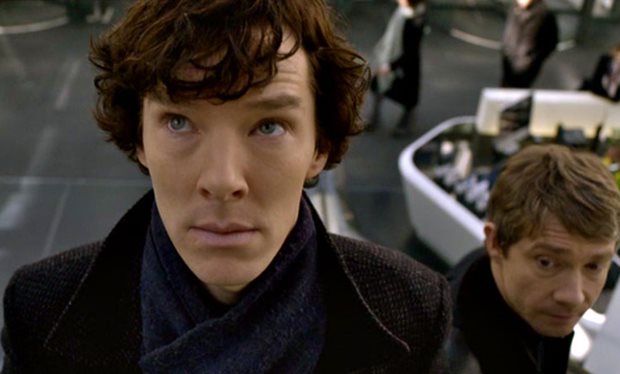After a two-year-long wait that left fans clinging to their seats with anticipation, the BBC hit TV show “Sherlock” finally paid its dues and aired its third season last month. Based on Arthur Conan Doyle’s famous detective stories, “consulting detective” Sherlock Holmes (Benedict Cumberbatch), with the help of his friend Dr. John Watson (Martin Freeman), uses his powers of deduction to solve mysteries in a modern-day London abuzz with people, technology, and crime.
This show is not for lovers of mindless entertainment. It is a mind bender, and will keep audiences guessing from beginning to end. The plots contain such intricate detail that blinking too slow might cause one to miss it, and sometimes one does not know how much they have learned until the end. There is humor, there is suspense, there is romance, but above all, there is Sherlock Holmes.
The highly-anticipated third season picked up where the mega-cliffhanger of the second season left off: with Holmes’s death and subsequent survival. Everyone was asking the same question: How did he survive? The answer is revealed in a very unexpected way, which left me wondering if it was even the answer at all. The vagueness was irking; the ingenuity, admirable.
Some critics say season three strayed a bit too far from the suspenseful, crime-drama format of seasons one and two. After all, episode one was mostly about Sherlock rectifying broken ties after two years of being “dead”, and episode two felt more like filler, with a lot more humor, heart, and side-stories than a typical Sherlock episode. The season finale, however, drove it home, connecting some of the more loose-leaf elements from the first two episodes in one, big, detail-oriented plot that brought back the more heavyweight suspense and drama that “Sherlock” is known for.
Many shows these days—especially crime dramas—seem to follow too rigid a format; in other words, they are too predictable. In our day and time, there are too many opportunities for good writing and creative liberties, but not enough appeal. “Sherlock” is not a very popular show in the US; this is something of a paradox. If one listens, and watches, and looks past the thick British accents, they will see that there is good writing, some punchy one-liners, and a lot of talented acting. It is not just another crime drama; it is not just another Sherlock Holmes adaptation; it is an entity all its own, flush with depth, charm, and originality. It is not perfect, and not for everyone, but in the words of Sherlock Holmes, “Heroes don’t exist, and if they did, I wouldn’t be one of them.”


